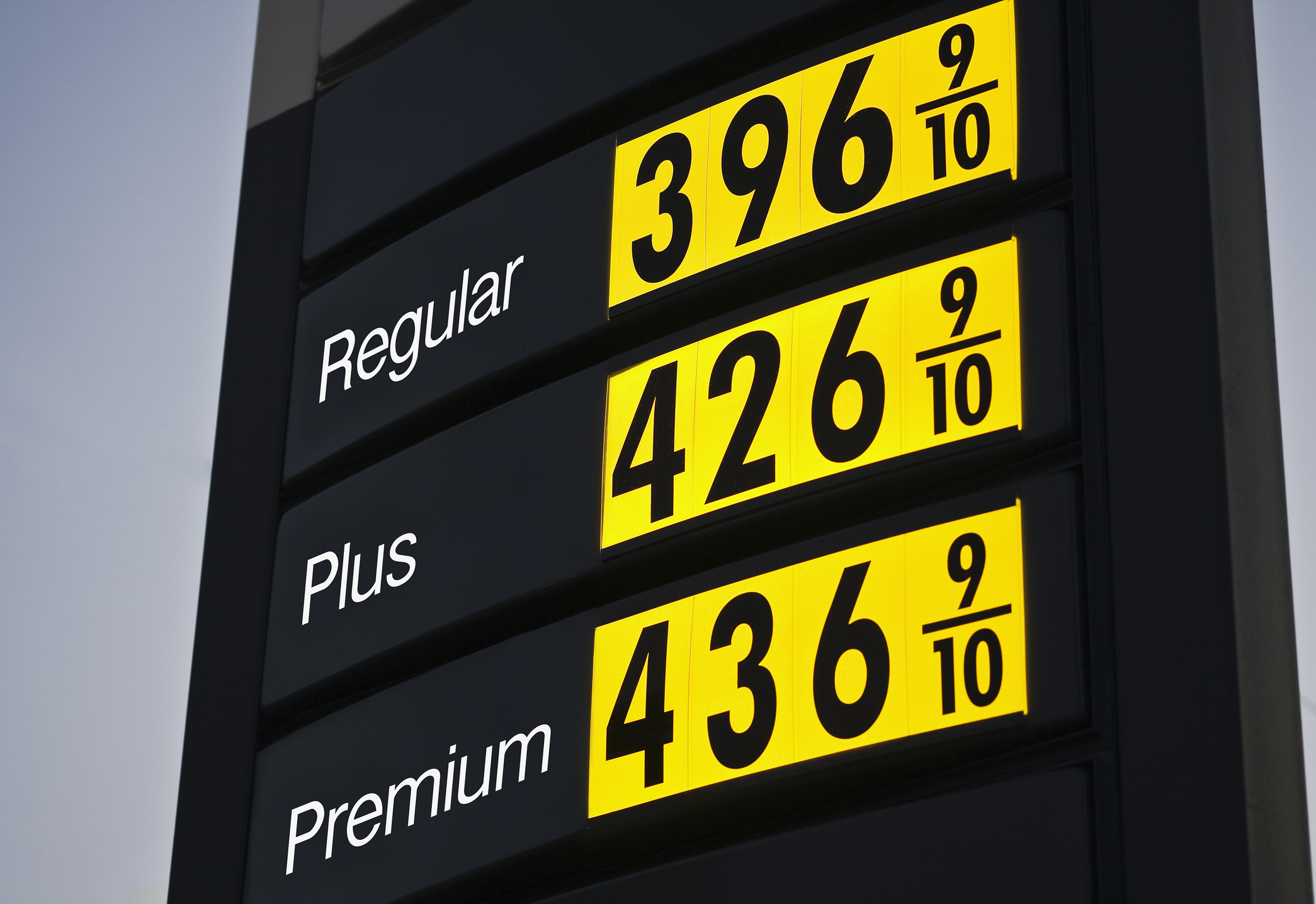Should You Buy a Toyota?
The recalled models are being repaired, but prices are softening -- creating tempting bargains.

Profit and prosper with the best of Kiplinger's advice on investing, taxes, retirement, personal finance and much more. Delivered daily. Enter your email in the box and click Sign Me Up.
You are now subscribed
Your newsletter sign-up was successful
Want to add more newsletters?

Delivered daily
Kiplinger Today
Profit and prosper with the best of Kiplinger's advice on investing, taxes, retirement, personal finance and much more delivered daily. Smart money moves start here.

Sent five days a week
Kiplinger A Step Ahead
Get practical help to make better financial decisions in your everyday life, from spending to savings on top deals.

Delivered daily
Kiplinger Closing Bell
Get today's biggest financial and investing headlines delivered to your inbox every day the U.S. stock market is open.

Sent twice a week
Kiplinger Adviser Intel
Financial pros across the country share best practices and fresh tactics to preserve and grow your wealth.

Delivered weekly
Kiplinger Tax Tips
Trim your federal and state tax bills with practical tax-planning and tax-cutting strategies.

Sent twice a week
Kiplinger Retirement Tips
Your twice-a-week guide to planning and enjoying a financially secure and richly rewarding retirement

Sent bimonthly.
Kiplinger Adviser Angle
Insights for advisers, wealth managers and other financial professionals.

Sent twice a week
Kiplinger Investing Weekly
Your twice-a-week roundup of promising stocks, funds, companies and industries you should consider, ones you should avoid, and why.

Sent weekly for six weeks
Kiplinger Invest for Retirement
Your step-by-step six-part series on how to invest for retirement, from devising a successful strategy to exactly which investments to choose.
Talk about awkward. No sooner had Kiplinger finished our annual vehicle buyer’s guide -- with several Toyota vehicles named Best in Class, Best New or Best Resale winners -- than Toyota was in the news for huge recalls that affect nine of its models.
If you’re thinking about buying a Toyota, contrarian as it sounds, the time to act is now -- or as soon as sales are back in full swing. Prices for new and used Toyotas have taken a hit, but Kiplinger believes that once the fixes are in place and the media attention dies down, long-term resale values -- a key component of our rankings -- will rebound and our picks will continue to offer superior overall value. At the same time, it would be shortsighted to trade in a Toyota while used-car values are depressed.
(See also Stock Watch: What the Toyota News Means for Investors)
From just $107.88 $24.99 for Kiplinger Personal Finance
Become a smarter, better informed investor. Subscribe from just $107.88 $24.99, plus get up to 4 Special Issues

Sign up for Kiplinger’s Free Newsletters
Profit and prosper with the best of expert advice on investing, taxes, retirement, personal finance and more - straight to your e-mail.
Profit and prosper with the best of expert advice - straight to your e-mail.
Toyota has a long history of quality and reliability -- in 2009, J.D. Power gave ten initial quality awards to Toyota or its Lexus brand, more than it awarded to any other automaker. Toyota ranks 17th out of 20 auto manufacturers for the number of complaints per vehicle sold, according to the National Highway Traffic Safety Administration’s complaint database -- in other words, it’s near the bottom of the list for complaints. But reports that Toyota was aware of the problems and stayed mum, prompting a public apology from Toyota president Akio Toyoda, have shaken customer loyalty. "It’s not really a product problem," says James Bell, executive market analyst for Kelley Blue Book, which supplies our resale values. "It’s an image problem. These statistically small problems have taken on a very large perspective."
Even Consumer Reports, which temporarily suspended its recommendations of the recalled vehicles largely due to the halt in sales, is in a forgiving mood. "We anticipate being able to reinstate the recommendations once we are satisfied that the problems have been remedied," says auto editor Rik Paul.
Grab a Deal?
Buyers in the market for new wheels have started to shun the brand, as well as sister nameplates Scion and Lexus. Kelley Blue Book predicts that new and used vehicle values will continue to soften as cars sit on dealers’ lots.
That means lower prices for buyers, plus a lot more room to haggle. Kelley says that 2010 Prius models are selling for close to invoice price -- a $1,000 to $1,500 drop from sticker price. And even used Prius models unaffected by recalls have seen a 1.5% drop in value. Edmunds.com expects Toyota to offer goodwill incentives, probably on all models. You could also get a sweet deal on a used Toyota. Kelley is reporting that used cars now on dealers’ lots have sunk in value by as much as 4.5%.
Already a Toyota owner? Resist the urge to trade it in, at least for now. Several manufacturers (including General Motors, Ford and Chrysler) are offering $1,000 rebates for Toyota trade-ins, but the lower trade-in value will likely erase your savings. Edmunds reports that Toyotas affected by the recalls have taken as much as a 10% hit in trade-in value. The best thing to do is to get your vehicle fixed and wait a few months for values to settle before you decide to trade in or not.
(See also Business Forecast: U.S. Automakers Poised to Gain From Toyota's Problems)
Advice for Owners
Recalls for two forms of unintended acceleration -- pedal entrapment by floor mats and sticking accelerator pedals -- affect eight models, and the company even temporarily suspended sales at the end of January. Then the 2010 Prius was added to the list of recalls -- for a software glitch that affects the braking system. Now the best-selling Corolla is being investigated for possible steering problems.
Dealers have received parts and have begun fixing these recalled models, and some are already back on sale. Toyota has begun mailing letters to owners of the recalled vehicles letting them know when to bring in their car for the fix, which is estimated to take about 30 minutes for the sticking accelerators. As a precaution, the company is installing a brake-override system -- to override the accelerator command should it get stuck -- across all its vehicles in the future.
For more information on the recall, go to www.toyota.com/recall. If your vehicle is listed, contact your dealer with your VIN (the number listed at the base of your windshield and on the driver’s-side doorjamb). If your vehicle has been recalled for improperly placed floor mats, remove them; if it has been recalled for a sticking accelerator, monitor your accelerator’s response. Unless the pedal shows a tendency to be slow to return to the up position or it feels sticky at any point, you should be fine to drive the vehicle until it is fixed.
If your gas pedal sticks, Consumer Reports recommends that you put the car in neutral, so that no power is going to the wheels. Then apply the brakes steadily until you can stop the vehicle. Shut off the engine with the transmission in neutral and then put the car in park. Do not pump the brakes; doing so can deplete the vacuum assist and require stronger brake pressure. Don’t turn the vehicle off until you’ve stopped unless absolutely necessary -- that can lock up the steering.
Profit and prosper with the best of Kiplinger's advice on investing, taxes, retirement, personal finance and much more. Delivered daily. Enter your email in the box and click Sign Me Up.

-
 How Much It Costs to Host a Super Bowl Party in 2026
How Much It Costs to Host a Super Bowl Party in 2026Hosting a Super Bowl party in 2026 could cost you. Here's a breakdown of food, drink and entertainment costs — plus ways to save.
-
 3 Reasons to Use a 5-Year CD As You Approach Retirement
3 Reasons to Use a 5-Year CD As You Approach RetirementA five-year CD can help you reach other milestones as you approach retirement.
-
 Your Adult Kids Are Doing Fine. Is It Time To Spend Some of Their Inheritance?
Your Adult Kids Are Doing Fine. Is It Time To Spend Some of Their Inheritance?If your kids are successful, do they need an inheritance? Ask yourself these four questions before passing down another dollar.
-
 10 Things You Should Know About Buying a Car Today, Even if You've Bought Before
10 Things You Should Know About Buying a Car Today, Even if You've Bought BeforeIf buying a car is on your to-do list, and it's been a while since you went shopping for a new one, this guide will help avoid any nasty shocks in the showroom.
-
 Get the Best Car Deal in Retirement: Here's the Trick
Get the Best Car Deal in Retirement: Here's the TrickPlanning on shopping for a new car this Labor Day weekend? Here’s how to haggle for a better price, even though you're retired.
-
 7 Gas-Saving Tips That Actually Work
7 Gas-Saving Tips That Actually WorkThese are gas-saving tips that will actually work for you and your car this year.
-
 Want to Lease an EV? The Tax Credit 'Loophole' for That Is Going Away Soon
Want to Lease an EV? The Tax Credit 'Loophole' for That Is Going Away SoonTax Credits If you are deciding whether to lease or buy an electric vehicle, here is what you need to know about how the EV lease tax credit works now that it will be eliminated under Trump's new tax law.
-
 Car Buying in a Topsy-Turvy Market
Car Buying in a Topsy-Turvy MarketYou need a new car? Good luck with that! What should you do? We've got some answers.
-
 Watch Out for Flood-Damaged Cars from Hurricane Ian
Watch Out for Flood-Damaged Cars from Hurricane IanBuying & Leasing a Car In the wake of Hurricane Ian, more flood-damaged cars may hit the market. Car prices may rise further because of increased demand as well.
-
 Car Buyers: The 3-Day Grace Period Is Just a Myth!
Car Buyers: The 3-Day Grace Period Is Just a Myth!Buying & Leasing a Car Many car buyers think they have three days after making a purchase to return a car. Here’s where they’re going wrong, and what they should do instead to get a decent used car.
-
 PODCAST: Car-Buying in an Inflated Market with Jenni Newman
PODCAST: Car-Buying in an Inflated Market with Jenni NewmanBuying & Leasing a Car With cars both scarce and expensive these days, what to do if you want – or need – a new ride? Car-buying strategist Jenni Newman of Cars.com shares some tips. Also, more on the magical 9% savings bond.